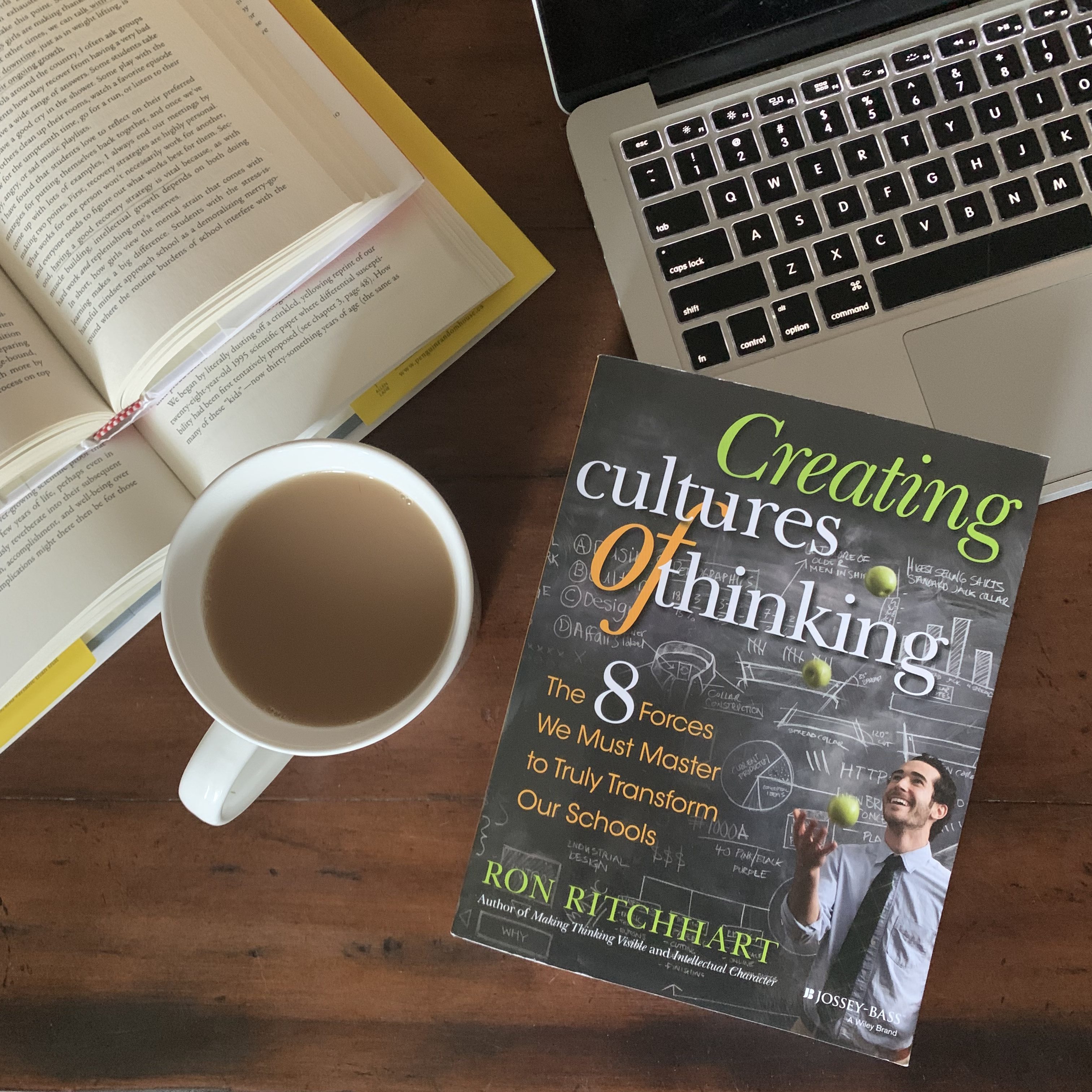Sometimes I find reading educational books as a French teacher to be challenging. There are always so many wonderful, inspiring ideas, but how do I harness them in a second language and remain true to prioritizing use of the target language in my classroom?
The language barrier is a big area of tension for me. How do I engage high-level thinking using a beginner/intermediate-level of vocabulary while also keeping our learning meaningful and engaging for young teenagers? It’s a lot to hold at once!
I haven’t found the magic answers yet; however, Creating Cultures of Thinking by Ron Ritchhart gave some ideas to mull over. The sections on prioritizing what is absolutely the most important in our classrooms resonated with me the most. I loved his question, “If you had your students for only six weeks, what would be the single most important thing you would want them to understand? ” (Ritchhart, Creating Cultures of Thinking, p.100.)
My answer would certainly be that I’d want my students to understand how to communicate orally for a purpose, which reaffirms much of the work I’ve been exploring over the past year.
The other idea I really loved was about how teachers, “have to weigh the importance of accuracy against the goal of developing independence.” (Ritchhart, Creating Cultures of Thinking, p. 209.) This is something I’ve been thinking about for the past few years in my teaching, especially with written tasks my students complete.
I used to spend ages giving feedback on every single grammatical error, but I’ve learned that I need to shift my thinking around written feedback. I do not need to edit all of these errors. The students do not need to correct all of these errors. Not only is it, I’m sure, discouraging to see such a high volume of edits on your work as a student, but perfection is not actually our goal. I want to assess students not for the number of mistakes they make but, rather, for the clarity of their ideas. This idea is certainly still a work in progress in my classroom and in my teaching, but it’s where I’m hoping to move more and more in my assessments.
There were plenty of other great ideas in his book as well. I’d recommend any teacher pick it up!
Jenn
